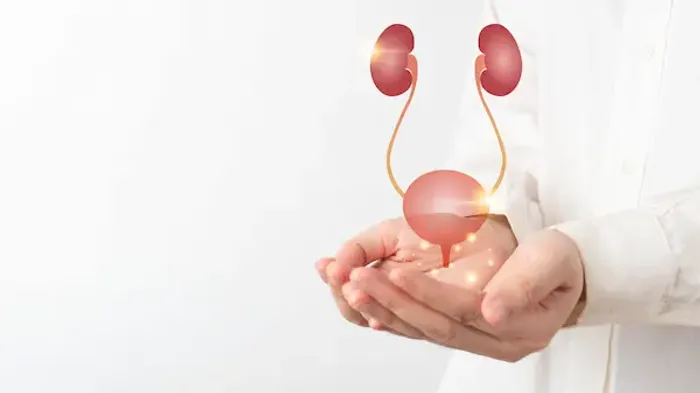Urinary Retention: Overview of Symptoms and Treatment
Urinary retention is the inability to empty the bladder fully, causing discomfort and potential health risks. Learn the symptoms, causes, diagnosis methods, and effective treatments for both acute and chronic urinary retention, along with tips for prevention and management.

Written by Dr. M L Ezhilarasan
Reviewed by Dr. Shaik Abdul Kalam MD (Physician)
Last updated on 13th Jan, 2026

Urinary retention is a condition where a person has difficulty emptying their bladder completely or at all. It can be uncomfortable, painful, and even dangerous if left untreated. If you or someone you know is experiencing this issue, it’s important to understand the symptoms, causes, and treatment options available.
What is Urinary Retention?
Urinary retention occurs when the bladder doesn’t empty properly, leading to a buildup of urine. This can happen suddenly (acute urinary retention) or develop gradually over time (chronic urinary retention).
- Acute urinary retention is a medical emergency—you may feel a sudden, severe urge to urinate but can’t pass any urine. This requires immediate medical attention.
- Chronic urinary retention develops slowly, often causing frequent urination, weak urine flow, or a feeling that the bladder is never fully empty.
Symptoms of Urinary Retention
The symptoms depend on whether the condition is acute or chronic:
Acute Urinary Retention Symptoms
- Sudden inability to urinate despite a full bladder
- Severe pain or discomfort in the lower abdomen
- Swelling in the lower belly
Chronic Urinary Retention Symptoms
- Frequent urination (8 or more times a day)
- Weak or slow urine stream
- Difficulty starting urination
- Feeling like the bladder isn’t empty after urinating
- Mild discomfort in the lower abdomen
- Occasional urine leakage (overflow incontinence)
If you experience any of these symptoms, especially acute retention, seek medical help immediately.
What Causes Urinary Retention?
Several factors can lead to urinary retention, including:
1. Blockages in the Urinary Tract
- Enlarged prostate (common in older men)
- Kidney or bladder stones
- Tumours in the bladder, prostate, or urethra
- Constipation pressing on the bladder
2. Nerve Problems (Neurogenic Bladder)
- Diabetes (can damage bladder nerves)
- Stroke or spinal cord injuries
- Multiple sclerosis or Parkinson’s disease
3. Medications
- Some cold and allergy medicines (antihistamines)
- Pain relievers with opioids
- Muscle relaxants
4. Infections or Swelling
- Urinary tract infections (UTIs)
- Prostatitis (inflammation of the prostate)
5. Weak Bladder Muscles
- Aging can weaken bladder muscles
- Pelvic floor dysfunction (especially in women after childbirth)
How is Urinary Retention Diagnosed?
If you suspect urinary retention, a doctor will perform tests such as:
- Physical exam (checking for an enlarged prostate or pelvic issues)
- Urine tests (to check for infection or blood)
- Bladder scan (ultrasound to measure urine left in the bladder)
- Cystoscopy (a thin tube with a camera to look inside the bladder)
- Urodynamic tests (to check bladder function)
Treatment Options for Urinary Retention
The treatment depends on whether the condition is acute or chronic and its underlying cause.
1. Acute Urinary Retention Treatment
- Catheterisation: A thin tube is inserted into the bladder to drain urine immediately.
- Medications: If an infection or swelling is the cause, antibiotics or anti-inflammatory drugs may be prescribed.
2. Chronic Urinary Retention Treatment
- Medications: Alpha-blockers (for prostate issues) or drugs to relax bladder muscles.
- Lifestyle Changes: Avoiding caffeine, alcohol, and bladder irritants.
- Bladder Training: Scheduled urination to improve bladder control.
- Surgery: If caused by an enlarged prostate or blockage, procedures like TURP (Transurethral Resection of the Prostate)
may be needed.
Tips to Manage Urinary Retention
1. Stay Hydrated (But Not Too Much)
- Drink enough water, but avoid excessive fluids before bedtime.
2. Avoid Bladder Irritants
- Cut down on caffeine, alcohol, and spicy foods.
3. Practice Double Voiding
- After urinating, wait a few seconds and try again to ensure the bladder is empty.
4. Pelvic Floor Exercises (Kegels)
- Strengthening pelvic muscles can help with bladder control.
5. Manage Constipation
- Eat fibre-rich foods and stay active to prevent pressure on the bladder.
When to See a Doctor?
Seek medical help if you:
- Can’t urinate at all (emergency)
- Have frequent urination with pain
- Notice blood in urine
- Experience sudden incontinence
If you’re struggling with urinary retention, don’t hesitate to consult a specialist. You can book an appointment with a urologist through Apollo 24|7 for expert advice and treatment.
Final Thoughts
Urinary retention can be distressing, but with the right diagnosis and treatment, it’s manageable. Pay attention to your symptoms, follow medical advice, and make healthy lifestyle changes to improve bladder function. If you suspect urinary retention, don’t delay—seek help to prevent complications.
For expert consultation, schedule an appointment today on Apollo 24|7 and take the first step toward better urinary health!
Consult Top Specialist
Consult Top Specialist

Dr. Rajib Ghose
General Physician/ Internal Medicine Specialist
25 Years • MBBS
East Midnapore
VIVEKANANDA SEBA SADAN, East Midnapore

Dr Suseela
General Physician
5 Years • MBBS
Bengaluru
Apollo Medical Center, Marathahalli, Bengaluru

Dr. Sujay Jagatap
General Practitioner
5 Years • MBBS
Bangalore Rural
Ashwini Clinic., Bangalore Rural

Dr. Ashita Kuruvilla
General Practitioner
7 Years • MBBS
Kolkata
KVC CLINIC, Kolkata

Dr. Zulkarnain
General Physician
2 Years • MBBS, PGDM, FFM
Bengaluru
PRESTIGE SHANTHINIKETAN - SOCIETY CLINIC, Bengaluru